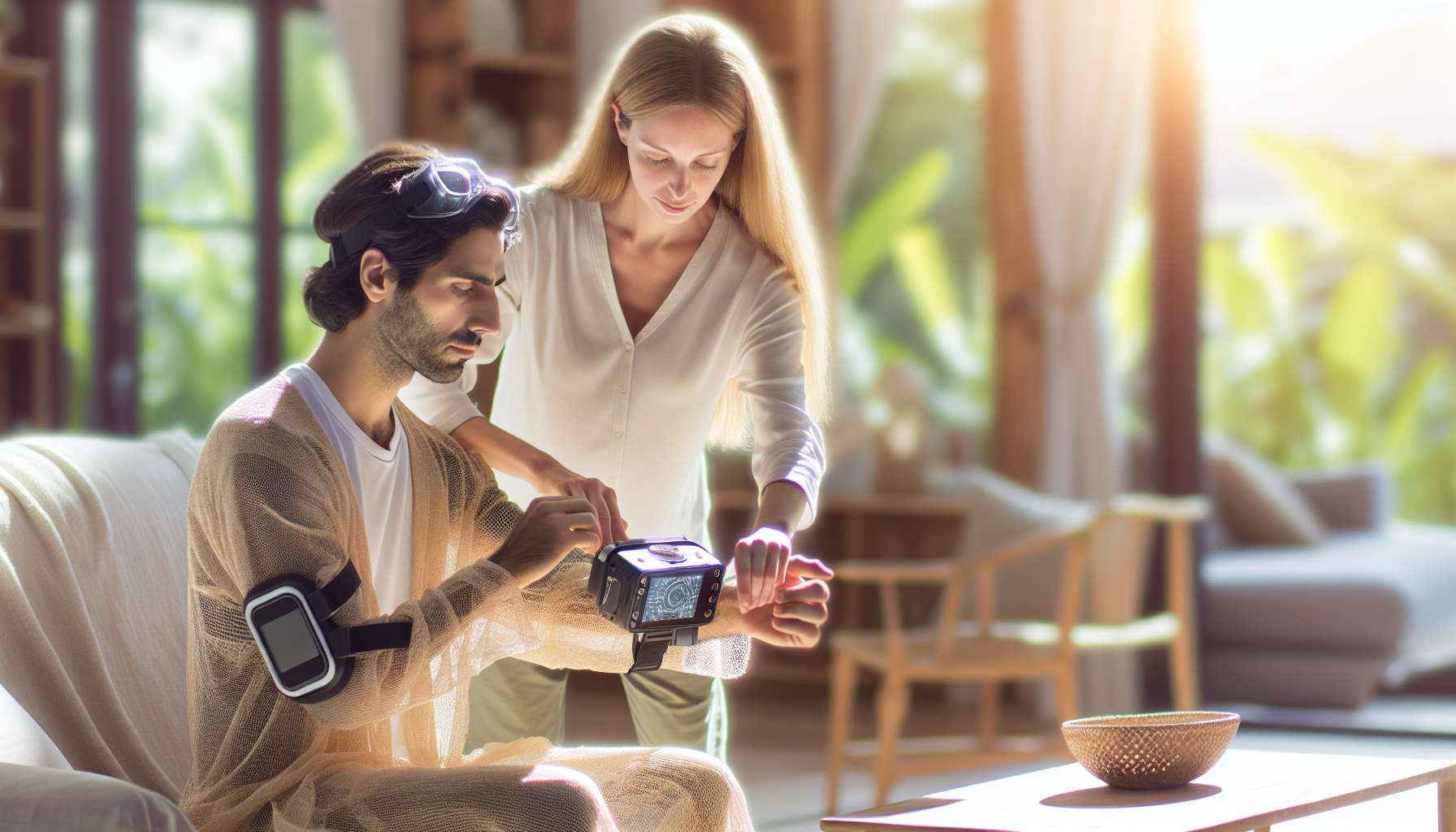Revolutionizing Home Healthcare: The Potential of AR
As technology continues to advance at an unprecedented pace, it is no surprise that augmented reality (AR) is making its way into various industries, including healthcare. AR has the potential to transform the way we approach home healthcare, providing innovative solutions that enhance patient care, improve outcomes, and empower both patients and healthcare professionals. In this article, we will explore the exciting potential of AR in home healthcare equipment and its impact on the industry.
Enhancing Patient Education and Empowerment
One of the key benefits of AR in home healthcare is its ability to enhance patient education and empowerment. AR can provide patients with interactive and immersive experiences, allowing them to better understand their medical conditions, treatment plans, and how to use complex medical equipment. By visualizing information in a more engaging and intuitive way, AR can empower patients to take an active role in their own care, leading to better adherence to treatment regimens and improved overall health outcomes.
Improving Training for Healthcare Professionals
AR also has the potential to revolutionize training for healthcare professionals, particularly in the context of home healthcare. By using AR, healthcare providers can simulate real-life scenarios and practice procedures in a safe and controlled environment. This technology can help bridge the gap between theory and practice, allowing professionals to gain hands-on experience without the need for physical equipment or risking patient safety. With AR, healthcare professionals can enhance their skills, improve efficiency, and deliver higher quality care to patients in their homes.
Streamlining Equipment Setup and Maintenance
Setting up and maintaining complex medical equipment can be a daunting task for both patients and caregivers. AR can simplify this process by providing step-by-step visual instructions overlaid on the actual equipment. This technology can guide users through the setup process, ensuring that everything is done correctly and efficiently. Additionally, AR can assist in troubleshooting common issues, reducing the need for costly service calls and minimizing equipment downtime. By streamlining equipment setup and maintenance, AR can save time, reduce frustration, and improve the overall patient experience.
Facilitating Remote Monitoring and Telemedicine
With the rise of telemedicine and remote monitoring, AR can play a crucial role in bridging the physical distance between patients and healthcare providers. By using AR-enabled devices, healthcare professionals can remotely assess patients’ conditions, provide real-time guidance, and monitor vital signs. This technology can enable more frequent and accurate monitoring, leading to early detection of potential issues and timely interventions. AR in home healthcare can bring the expertise of healthcare professionals directly to patients’ homes, improving access to care and reducing the need for unnecessary hospital visits.
Looking Ahead: The Future of AR in Home Healthcare
The potential of AR in home healthcare is vast and ever-evolving. As technology continues to advance, we can expect even more exciting developments in this field. Imagine a future where patients can receive personalized AR-guided rehabilitation exercises, where caregivers can access real-time patient data through AR-enabled wearables, or where healthcare professionals can collaborate seamlessly through AR-powered teleconferencing. The possibilities are endless, and the impact on patient care and outcomes is immense.
In conclusion, augmented reality has the power to revolutionize home healthcare by enhancing patient education, improving training for healthcare professionals, streamlining equipment setup and maintenance, and facilitating remote monitoring and telemedicine. As the potential of AR continues to unfold, it is crucial for businesses and healthcare providers to stay informed and explore the possibilities this technology offers. Embracing AR in home healthcare can lead to improved patient experiences, better outcomes, and a more efficient and effective healthcare system.





